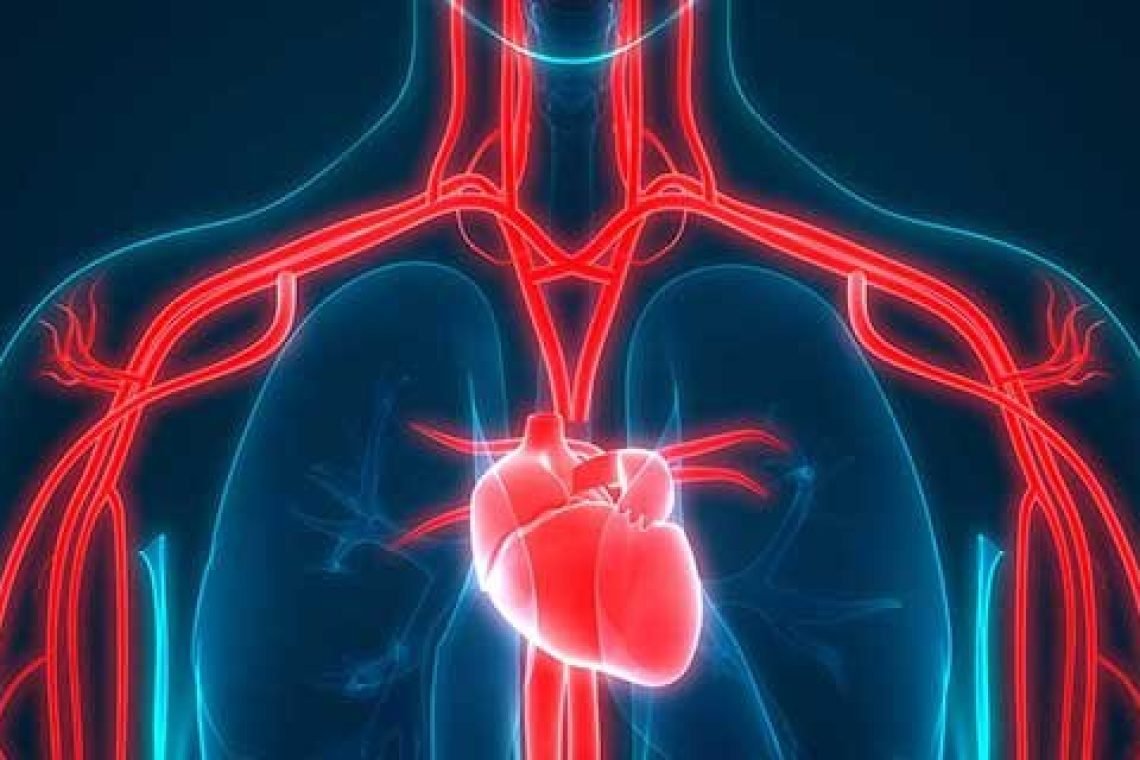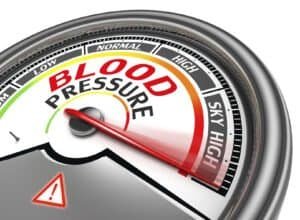Key Takeaways
- Understanding cholesterol and its impact on heart health.
- Strategies to lower cholesterol and prevent heart disease.
- The role of diet, lifestyle, and specific nutrients in managing cholesterol.
Introduction
Cholesterol is a fatty substance found in your blood. While it’s essential for building healthy cells (and therefor life), having high levels of cholesterol can increase your risk of heart disease. Heart disease remains one of the leading causes of death globally, but by managing cholesterol levels through diet, lifestyle changes, and informed choices, you can significantly reduce your risk.
Heart Attacks
It’s worth noting that heart attacks themselves are sudden things but it has been brewing for a long time. It’s easier to think of a continuous thing, happening for most of your life, it’s just you want to slow it right down.
Cholesterol gets retained in the blood vessel wall. The body’s immune system notices and starts to attack it. The immune system is like an army, and one of the grouping of soldiers are called macrophages. These guys eat the cholesterol particule and then died. They ten lead to a fatty streak. The fatty streak becomes larger over time. With the help of roaming calcium, the build up begins to contain calcium. This causes the hardening of the artery. It’s sometimes referred to as calcification. High cholesterol, high blood pressure and diabetes each accelerate this hardening of the arteries.
Understanding Cholesterol
Cholesterol is produced mainly by the liver. Cholesterol doesn’t dissolve in water, so it needs to be carried through our bloodstream wrapped up in a protein. This combination of proteins and cholesterol (fat or lipid) is called a lipoprotein. There are different types of cholesterol based on what the lipoprotein carries:
- Low-Density Lipoprotein (LDL): Often referred to as ‘bad’ cholesterol. LDL moves through the body delivering cholesterol to our cells. If too much LDL cholesterol builds up, it can form plaque in your artery walls, leading to atherosclerosis, a type of heart disease. The LDL concentration is a reasonable enough estimation of the number of cholesterol particles in your bloodstream, and therefore guides a practitioner on risk of heart disease. The ultimate goal is to keep LDL as low as possible for as long as possible. LDL levels usually rise as we get older.
- High-Density Lipoprotein (HDL): Known as ‘good’ cholesterol because HDL moves through the body carrying cholesterol away from the cells and back to the liver. However, what matters more than this number is their function. If you have lower levels of HDL cholesterol, and higher levels of triglycerides, you may have metabolic syndrome. It’s worth chatting to your GP about this as the combination of metabolic syndrome with higher levels of LDL cholesterol could lead to an event like a heart attack earlier in life. Ultimately, with HDL cholesterol, it’s a goldilocks scenario. There is such thing as too little and too much.
- Triglycerides (TG): Triglycerides are a type of blood fat. They are a great source of energy. However, too much in our blood stream can increase risk of heart disease. We can eat them through our diet and our body can make them. When they are delivered to us from our food they are absorbed by our intestines and packaged into parcels of fats and proteins called chylomicrons, a type of lipoprotein. The triglycerides are then brought to our tissues to be used for energy or stored for another time. The body makes its own triglycerides in the liver, and are carried in a different type of lipoprotein called VLDL.
- Very Low-Density Lipoprotein (VLDL): This type of lipoprotein mainly carries triglycerides, another type of fat, in your blood. Like LDL, high levels of VLDL can contribute to the buildup of plaque in your arteries.
The balance between these types of cholesterol is crucial. Higher levels of LDL and lower levels of HDL increase the risk of heart disease.
Link Between Cholesterol and Heart Disease Ultimately, the greater the number of cholesterol particulaes in your blood, the high risk that one of these gets trapped in the wall of the artery. This triggers an inflammatory process that leads to the formation of plaques. This plaque can narrow your arteries and make them less flexible, a condition known as atherosclerosis. If a clot forms and blocks a narrowed artery, it can result in a heart attack or stroke. Therefore, maintaining healthy cholesterol levels is vital for heart health.
Dietary Strategies to Lower Cholesterol
Maintaining a healthy diet is one of the most effective ways to manage cholesterol levels and improve heart health. Certain foods can help lower your LDL cholesterol, raise your HDL cholesterol, and reduce triglycerides. Here are some key dietary strategies:
1. Increase Your Fibre Intake Dietary fibre, particularly soluble fibre, can help reduce the absorption of cholesterol into your bloodstream. Foods rich in soluble fibre include oats, beans, lentils, fruits, and vegetables. Incorporating these into your daily diet can have a significant impact on lowering cholesterol levels.
- Read More: How Do You Eat Enough Fibre?
2. Opt for Healthy Fats Replacing saturated and trans fats with healthier fats can improve cholesterol levels. Unsaturated fats, found in foods like avocados, olive oil, and nuts, can help reduce LDL cholesterol and raise HDL cholesterol. Additionally, omega-3 fatty acids, found in fatty fish such as salmon, mackerel, and sardines, can lower triglycerides and offer heart-protective benefits.
3. Include Plant Sterols and Stanols Plant sterols and stanols are substances found in plants that help block the absorption of cholesterol. They are added to certain foods like margarine, milk and yogurt drinks. Including these fortified foods in your diet can help lower LDL cholesterol.
4. Avoid Trans Fats and Limit Saturated Fats Trans fats, often found in baked goods, fried foods, and margarines (not in the EU!), can raise LDL cholesterol and lower HDL cholesterol. Saturated fats, found in red meat and coconut products, should also be limited. Instead, choose lean meats, and limit coconut oils and milks.
5. Eat a Variety of Fruits and Vegetables Fruits and vegetables are low in calories and high in vitamins, minerals, and antioxidants. They can help lower LDL cholesterol, lower inflammation and improve overall heart health. Aim to fill half your plate with fruits and vegetables at each meal.
6. Choose Whole Grains Whole grains like brown rice, quinoa, barley, and whole-wheat products are high in fibre and can help lower cholesterol levels. Unlike refined grains, whole grains retain their bran and germ, providing more nutrients and fibre.
7. Don’t Worry Too Much About Your Cholesterol Intake from Foods Dietary cholesterol has a smaller impact on blood cholesterol levels than previously thought,. Foods such as egg yolks, shellfish, and organ meats don’t need to be limited, for most people, in most circumstances.
Sample Meal Plan for Lowering Cholesterol
| Meal | Foods Included |
| Breakfast | Oatmeal/ porridge topped with berries and a handful of nuts. |
| Mid-Morning Snack | A piece of fruit (e.g., apple or orange) and a small serving of yogurt with added plant sterols. |
| Lunch | Salad with mixed greens, chickpeas, avocado, and a dressing made with olive oil and lemon juice. |
| Afternoon Snack | Carrot sticks with hummus. |
| Dinner | Grilled salmon with a side of quinoa and steamed broccoli. |
| Evening Snack | A small bowl of air-popped popcorn. |
Incorporating these dietary strategies into your daily routine can help you effectively manage your cholesterol levels and support heart health.
Lifestyle Changes to Improve Heart Health
In addition to dietary strategies, making specific lifestyle changes can significantly improve heart health and manage cholesterol levels. Here are some effective lifestyle modifications:
1. Exercise Regularly Regular physical activity can help raise HDL cholesterol (the good cholesterol) and lower LDL cholesterol (the bad cholesterol). It also helps maintain a healthy weight, which can help with heart health although lots of positive changes can be made without changing your body composition too. Aim for at least 150 minutes of moderate-intensity aerobic exercise or 75 minutes of vigorous-intensity exercise per week. Activities such as brisk walking, cycling, swimming, and jogging are excellent options. Don’t forget stength exercise too! Exercise that can help strengthen the body is beneficial for heart health, especially when done every day or two.
2. Manage Stress Chronic stress can negatively impact your heart health by raising blood pressure and leading to unhealthy coping mechanisms such as overeating, smoking, or drinking alcohol. Effective stress management techniques include:
- Mindfulness and Meditation: Practices such as mindfulness meditation can help reduce stress levels and improve overall well-being.
- Physical Activity: Exercise is a great way to manage stress.
- Hobbies and Leisure Activities: Engaging in activities you enjoy can help reduce stress.
3. Quit Smoking Smoking is a major risk factor for heart disease. It damages the lining of your arteries, raises your blood pressure, and negatively impacts cholesterol. It also promotes inflammation and blood clot formation. Quitting smoking can improve your heart health and overall well-being significantly. Smokers have double the risk of dying from a heart attack within a 10 year period. If you smoke, seek support and resources to help you quit.
4. Limit Alcohol Intake Drinking alcohol can lead to high blood pressure, high triglyceries, coronary artery disease, metabolic syndrome and poor sleep. Once your intake goes above 2 standard drinks a day the risk increases rapidly. Less is more!
5. Maintain a Healthy Weight Excess body fat increases the risk of heart disease, especially when located on teh belly. Subcutaneous fat, the pinchable stuff on your waist is of less interest compared to visceral fat. Visceral fat is the fat that lies in and around your organs. Measuring your waist circumference can give you an idea of your visceral fat levels. This is why it is recommended in medical settings. Losing even a little bit of excess fat can help lower your LDL cholesterol and triglycerides while raising HDL cholesterol. Aiming for a waist circumference of less than 88 cm if female, and less than 102 cm if male, is usually the guide provided.
6. Hold off on Intermittent Fasting Intermittent fasting (IF) has gained popularity as a method for weight loss and improved metabolic health. Intermittent fasting may increase cholesterol levels which would not benefit heart health. For this reason, if trying any new diet, whether it’s IF, TRF (Time Restricted Feeding), ADF (Alternative Day Fasting) or keto (high fat, low protein, low carbohydrate), please do monitor your bloods after making these changes.
- Read More: Intermittent Fasting
Sample Weekly Exercise Plan for Heart Health
| Day | Activity | Duration |
| Monday | Brisk walking | 30 minutes |
| Tuesday | Cycling | 30 minutes |
| Wednesday | Strength training (bodyweight exercises) | 30 minutes |
| Thursday | Swimming | 30 minutes |
| Friday | Pilates | 30 minutes |
| Saturday | Brisk walking or hillwalking | 30 minutes |
| Sunday | Yoga or stretching | 30 minutes |
Incorporating these lifestyle changes can have a profound impact on your cholesterol levels and overall heart health. By combining a healthy diet with regular physical activity, stress management, and other positive lifestyle choices, you can significantly reduce your risk of heart disease.
Courses and Resources for Managing Cholesterol
Orla Walsh Nutrition offers comprehensive courses designed to help individuals manage their cholesterol levels and improve their overall heart health. These courses provide practical advice, meal plans, and support to help you achieve your health goals. Here are two key courses that can benefit you:
1. Lower Cholesterol Course This course is specifically designed to help you lower your cholesterol levels through dietary and lifestyle changes. It includes meal ideas, alterations to recipes, and expert advice to help you make sustainable changes to your diet and lifestyle.
Course Features:
- Detailed nutrition guidance tailored to lower cholesterol.
- Recipes ideas that are easy to follow and delicious.
- Practical tips for incorporating heart-healthy foods into your diet.
- Strategies for wavering motivation to stay on track.
- Learn More: Lower Cholesterol Course
2. Lower Blood Pressure Course High blood pressure often accompanies high cholesterol and is a significant risk factor for heart disease. This course provides you with the tools and knowledge to manage your blood pressure through diet, exercise, and lifestyle modifications.
Course Features:
- Comprehensive plans to reduce blood pressure naturally.
- Guidelines on the best foods to eat for blood pressure control.
- Exercise recommendations to support heart health.
- Tips for reducing stress and improving overall well-being.
- Learn More: Lower Blood Pressure Course
Book a Consultation with Our Dietitians If you prefer a more personalised approach, consider booking a consultation with one of our dietitians. We offer both online and in-person consultations in Dublin to help you develop a tailored plan for managing your cholesterol and improving your heart health.
- Book a Consultation: Dietitian Consultations
Conclusion
Managing your cholesterol is crucial for maintaining heart health and preventing heart disease. By understanding the different types of cholesterol and their impact on your heart, you can make informed decisions about your diet and lifestyle. Incorporating fibre-rich foods, healthy fats, and regular exercise, while avoiding saturated fats and managing stress, are effective strategies to improve your cholesterol levels.
Orla Walsh Nutrition’s courses provide valuable resources and structured plans to help you achieve your health goals. By taking advantage of these courses and implementing the strategies discussed, you can take proactive steps toward a healthier heart.
FAQs
What is a normal cholesterol level? This can often be confusing when you search cholesterol targets online. American targets are usually given per mg/dL while in Ireland and the UK it’s mmol/l. They’re the same, it’s just 2 different ways of measuring cholesterol and providing the answer.
If in Ireland or the UK, your cholesterol targets can be read as below.
Cholesterol And Triglycerides Healthy levels:
- Total cholesterol: No more than 5 mmol/l
- LDL cholesterol: No more than 3 mmol/l
- HDL cholesterol: More than 1 mmol/l
- Triglycerides: No more than 2 mmol/l
For people with heart disease or diabetes:
- Total cholesterol: No more than 4.5 mmol/l
- LDL cholesterol: No more than 1.8 mmol/l
For those in the United States, a normal cholesterol level typically consists of an LDL level below 100 mg/dL, HDL level of 40 (men)-50 (females) mg/dL or higher, and total cholesterol levels below 150 mg/dL.
- Read More: What Is a Normal Cholesterol Level?
How can I lower my cholesterol naturally? Lowering cholesterol naturally involves adopting a healthy diet rich in fibre, healthy fats, and plant sterols. Regular exercise, maintaining a healthy weight, and avoiding smoking and excessive alcohol consumption are also important.
Should I limit eggs because of the cholesterol they contain? While eggs are high in dietary cholesterol, they have a minimal impact on blood cholesterol levels for most people. It’s more important to focus on reducing saturated and trans fats.
How does high blood pressure affect heart health? High blood pressure forces your heart to work harder to pump blood, which can lead to thickening of the heart muscle and increased risk of heart attack, stroke, and heart failure. It can also damage the lining of the blood vessels helping cholesterol to be retained within the artery walls. Managing blood pressure is crucial for heart health.
- Read More: High Blood Pressure
Can intermittent fasting help with cholesterol management? Intermittent fasting can help improve cholesterol levels by promoting weight loss and improving metabolic health in a small subset of people. It;s not suitable for everyone.
What are the benefits of a high-fibre diet for heart health? A high-fibre diet helps lower LDL cholesterol by reducing its absorption in the bloodstream. Soluble fibre, in particular, binds with cholesterol in the digestive system and helps remove it from the body.
How much exercise is needed to improve heart health? Aim for at least 150 minutes of moderate-intensity aerobic exercise or 75 minutes of vigorous-intensity exercise per week. Regular physical activity helps raise HDL cholesterol and lower LDL cholesterol, improving overall heart health.
Are there any specific foods that help lower cholesterol? Foods that help lower cholesterol include oats, barley, beans, nuts, fatty fish, and foods fortified with plant sterols or stanols. These foods can help reduce LDL cholesterol and improve heart health.
How can stress management improve heart health? Managing stress helps lower blood pressure and reduce the risk of heart disease. Techniques such as mindfulness, meditation, physical activity, and engaging in hobbies can help reduce stress levels and promote heart health.
What are the long-term benefits of maintaining healthy cholesterol levels? Maintaining healthy cholesterol levels reduces the risk of heart disease, heart attacks, and strokes. It also promotes overall cardiovascular health and longevity.











